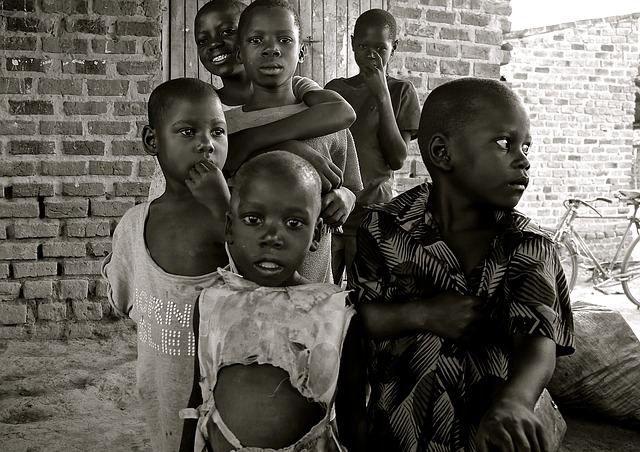clear

source:
ludi
It’s quiet shocking to know that a lot of people today , even those living in some of the third world countries do ignore these facts that I will be listing below: At least 80% of humanity lives on less than $10 a day. More than 80 percent of the world’s population lives in countries where income differentials are widening. The poorest 40 percent of the world’s population accounts for 5 percent of global income. The richest 20 percent accounts for three-quarters of world income. According to UNICEF, 22,000 children die each day due to poverty. And they die quietly in some of the poorest villages on earth, far removed from the scrutiny and the conscience of the world. Being meek and weak in life makes these dying multitudes even more invisible in death. Around 27-28 percent of all children in developing countries are estimated to be underweight or stunted. The two regions that account for the bulk of the deficit are South Asia and sub-Saharan Africa. If current trends continue, the Millennium Development Goals target of halving the proportion of underweight children will be missed by 30 million children, largely because of slow progress in Southern Asia and sub-Saharan Africa.
clear
 Wafa Benizid
6 years, 11 months ago
Wafa Benizid
6 years, 11 months ago
The bane of development in third world countries is corruption, minority are rich while majority are poor.The poverty level in such countries is alarming and detestable.Poverty level in third world countries are unimaginable and it may be extremely difficult to convince some people that lives in the western world that some people in the under- developed countries of the world practically feed on dung-hills.Lacks of basic amenities like foods, housing, health care etc aggravates peoples woes in such countries.
In a situation where individual occupying political position embezzle funds meant for developmental project and nothing is done to bring such individual to book escalates poverty level.Life expectancy has also come down in third world countries, roads are bad and this leads to multiple automobile accidents on our road.Government are insensitive to plight of citizens, they are more concern about what they can steal from government coffers.
People around the world does not know or understand the extent of poverty and hopelessness that is ravaging third world countries, needless to say the reason while thousands of youths fled from Africa to seek better life in Europe is because of ravaging poverty.More than 80% of Africa perish in the Sahara desert and yet government seems to turn blind eyes to pains of the citizenry.
 2
2
clear
People are unaware of the extent of poverty and what that looks like largely because the media singularly fails to cover it. Poverty comes up from time to time in the news as an emergency story, when aid from the west needs to be shipped in and viewers/readers can contrribute to the effort with charity donations. But the reasons for that poverty are not explored. To a large extent the media still follows the narrative of Live Aid, which was about how white people can 'save' the African poor. In practice the undoubted good will of Live Aid translated into Ethiopia's leader Mengistu investing the millions donated in Russian arms, largely because Bob Geldof's passion to see results happen quickly in practice meant zero accountability about what happened to the money raised. And throwing money at the problem of poverty is not a solution when it's in large part a consequence of deals struck by big corporations and their owners, who - to complete the circle - also have a big say about what gets put in the western media because of their advertising revenues, PR strategists, and informal influence through being on first name terms with politicians and fellow members of the global elite. All of that helps keep poverty a story about disasters, rather than a necessary result of the way big money works on a world scale.
 0
0
clear
I don't believe people across the world understand just how bad poverty is in different areas of the world at the moment. I believe one contributing factor to why people are unaware is because it is actually physically impossible to completely understand the extent of poverty in which people are living, without seeing it with your own eyes. How can you appreciate what a family is going through, with no food, no water, and no safety without being there and feeling the atmosphere in which people are living. The media pick up poverty stories from time to time, when there are urgent calls for help - but this occasional coverage does not enable the average person to fully appreciate and understand what this extreme poverty is. Seeing people on a screen, enables a person to detach themselves from the situation - and thus they never fully understand what it would actually be like to be there themselves. How can you? The media is a linked second contributing factor as it does not portray third world poverty constantly. This is an ongoing issue that could be reported every day, as the situation is just as bad every day if not getting worse - but with more topical news stories to fight against, and an audience that wants to hear something different each day, the media cannot keep up awareness of third world poverty daily.
 0
0
clear
Given that newsflashes arrive on our television screens or web browsers from all around the world, 24/7, most people in wealthier countries are likely to appreciate that a high proportion of the people they are sharing the planet with are in far worse circumstances. But these bulletins of populations struggling in poor accommodation or displaced by famine and warfare only have an ability to shock on a temporary basis. Widespread initiatives to better the lives of poverty-stricken communities in the third world are rare. Individual agencies perform a tireless but usually thankless task to introduce food and medical aid to impoverished communities.
But the perceptions of the extent to which the third world faces grinding poverty and its attendant issues of disease, malnourishment, and lack of education, is often a lottery. For instance, 30 years ago the world's attention focussed on Ethiopia after a BBC report on the famine in the Horn of Africa translated into an outpouring of empathy and charitable donations. However, in 2014 no fewer than 12 countries in Africa experienced armed conflict, which always has a devastating effect on civilian populations, ruining economies and causing widespread loss of livestock. Much as western societies do like to help out those less fortunate, there is such a thing as 'charity fatigue.'
 0
0
clear

 AdrianR
AdrianR
